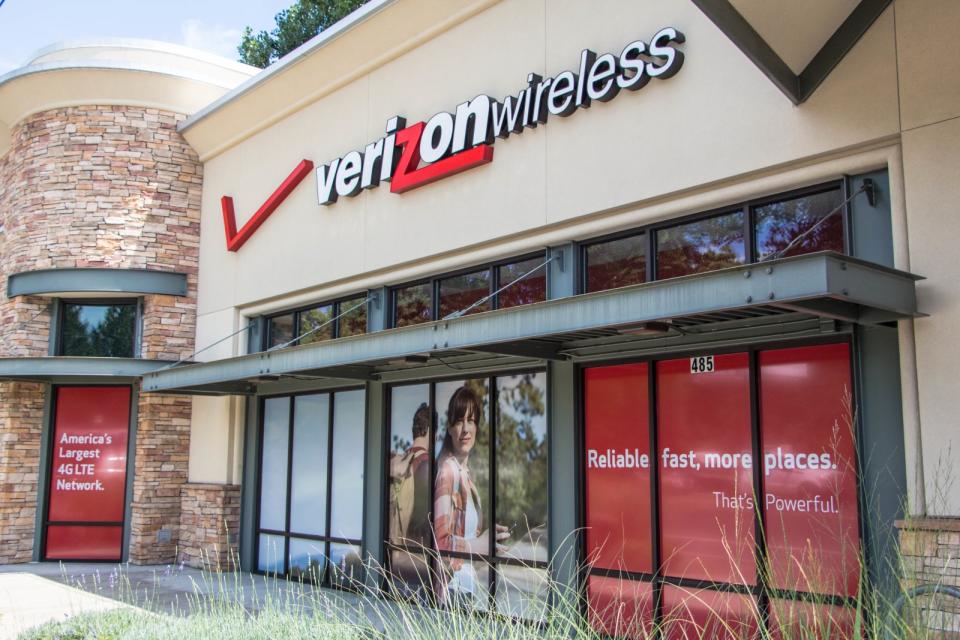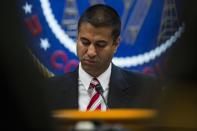Engadget has been testing and reviewing consumer tech since 2004. Our stories may include affiliate links; if you buy something through a link, we may earn a commission. Read more about how we evaluate products.
This is what transparency looks like without net neutrality
The FCC has a lot of faith in Comcast, Verizon, AT&T and other ISPs.
The Federal Communications Commission's proposal to dismantle net neutrality deletes the past two years of regulatory progress and essentially thrusts the internet back into the mid-1990s. Under chairman Ajit Pai, the FCC plans to remove the current ban on throttling, blocking or prioritization schemes, and revoke the internet conduct standard, which allows the commission to investigate zero-rating plans. Pai's proposal strips the internet of its status as a "common carrier" under Title II of the Telecommunications Act of 1996, drastically reducing regulation for internet service providers like Verizon, Comcast and AT&T.
As the FCC tears down the rules that sustain a free and open internet, it's placing an incredible amount of faith in the honesty of for-profit ISPs. To offset decreased oversight, the FCC is relying on a new brand of transparency: ISPs will be responsible for publicly disclosing whether they're blocking, throttling or prioritizing any online content. Remember, these practices aren't prohibited in the new proposal.
"We return, with minor adjustments, to the transparency rule adopted in the 2010 Open Internet Order, which provides consumers and the Commission with essential information while minimizing the burdens imposed on ISPs," the FCC writes.
The idea here is that public disclosure of these historically banned practices -- and a reduction in other, more technical reporting obligations -- will allow consumers to make informed decisions about their internet provider. Of course, this only holds up if customers have more than one provider to choose from. Many Americans have just one or two ISPs in their area.

Under the FCC's 2010 Open Internet Order, ISPs are required to report how they manage congestion, store traffic information, rate their services and handle other practices. This information must be presented in an easily accessible space, such as on the company's website. The new proposal adds four reporting categories to this list: blocking, throttling, affiliated prioritization and paid prioritization. In each case, the ISP is expected to disclose the practice and provide details about exactly which sites or streams are being blocked, degraded or boosted.
ISPs will be required to report these practices -- as long as they aren't able to be classified as "reasonable network management." This is a term defined in the 2010 Open Internet Order as follows:
"A network management practice is reasonable if it is appropriate and tailored to achieving a legitimate network management purpose, taking into account the particular network architecture and technology of the broadband Internet access service."
If Verizon, T-Mobile or AT&T can make throttling sound like a legitimate practice -- something they've all done -- they won't have to share it publicly at all.
ISPs are still beholden to anti-trust and consumer laws, and if a company does disclose any of these practices, the Federal Trade Commission or FCC can step in. The FTC is picking up a lot of power in this entire transaction: The FCC loses its authority to regulate broadband once it's no longer considered a telecommunications service, allowing the FTC to take over.
While the FTC can't impose actual rules over ISPs, it can report back to Congress if it uncovers issues that negatively affect consumers. The FCC and FTC have joint authority to investigate anti-competitive behavior, but overall, the proposal is designed to place more power at the feet of the FTC, an agency with significantly less punitive power than the FCC.

The FCC argues these changes are in the interest of sparking innovation. For the past two years, ISPs have been subject to reporting requirements as laid out under Title II of the Telecommunications Act, and the FCC calls these "unnecessary and burdensome." Supporters of net neutrality argue the opposite: The Electronic Frontier Foundation, for instance, says, "The FCC's new approach invites a future where only the largest internet, cable, and telephone companies survive, while every start-up, small business, and new innovator is crowded out."
With this week's proposal, the FCC is trusting ISPs to tell the public whenever they engage in business practices that have historically drawn ire from customers. It doesn't ban these practices, instead betting companies will transform them into new, pro-consumer experiences. The FCC is taking a massive leap of faith when it comes to ISP transparency -- and all of America is along for the ride.











